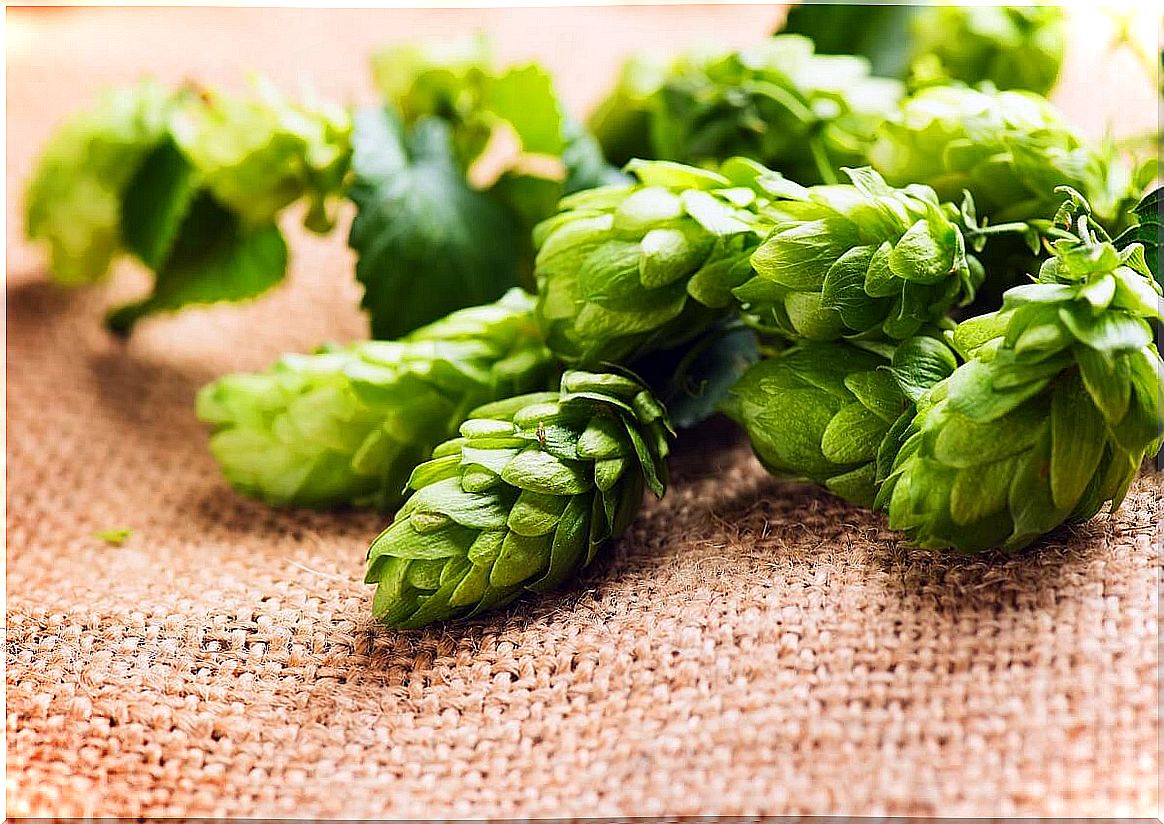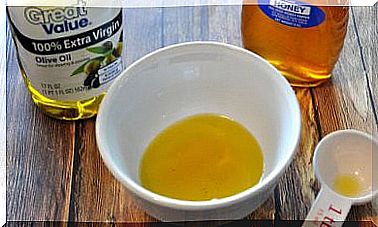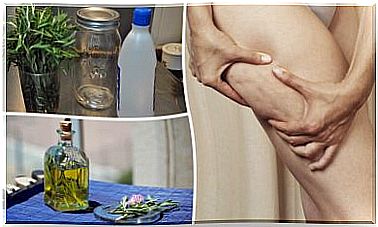Hops: Properties And Benefits For Your Health
In ancient times, the Romans used hop flowers to fill their pillows and reduce sleep problems. This use, although it lacks evidence, has been extended to the present day in popular culture.
In fact, today the flowers of the plant are still used for therapeutic purposes, not only associated with sleeping difficulties, but also for nervousness and digestive system problems.
Hops and their properties
Hops is a climbing plant native to China, which is also grown in many regions of the world. From the same family as cannabis , it has male and female flowers, in the shape of a cone. These are the most used in natural medicine.
The plant is known to be one of the main ingredients in beer; in particular, it is responsible for giving it its characteristic bitter taste, in addition to its aroma. It contrasts with the sweetness of the malt.
However, it is also known for its content of substances with pharmacological activity. The most prominent include the following:
- Tannins
- Flavonoids, such as quercetin, rutin, or campferol.
- Proanthocyanidins.
- Phenolic acids
- Bitter principles.
The benefits and properties of hops began to be studied in the middle of the 20th century. Due to its composition, certain properties are attributed to it. Here are the most popular ones.
- Central nervous system sedative.
- Hypnotic. This property is only present in essential oil.
- Antispasmodic. Helps alleviate pain and muscle stiffness.
- Bitter eupeptic. Plants that have this property stimulate the taste buds and prepare the body for digestion.
- Estrogenic. This activity was observed in more than one study, and has been corroborated in different in vivo tests.

Health benefits of hops
After knowing the components of hops and the properties attributed to it, it is not surprising that the plant is recommended under certain conditions. However, it is important to clarify that it is not a substitute for conventional treatments and should only be considered an adjunct.
Nervousness and anxiety
The infusions of the plant help calm the nerves in states of anxiety and agitation. The sedative effect of hops was discovered by observing that the harvesters of the plant were often more drowsy and fatigued than usual and fell asleep during working hours.
Insomnia
The German Commission (therapeutic guide for medicinal plants and their pharmacological uses accepted with scientific studies) approves the use of hops for sleep disorders. However, its intake should be supervised by the doctor, especially if sleeping problems are persistent.
Lack of appetite
The bitter principles of hops stimulate gastric secretions and help to whet the appetite. They also help improve digestion, especially in large meals or in cases of indulgence.
Menopause
Hops have active ingredients with estrogenic properties. For this reason, today it is used in many preparations to treat the negative effects of menopause, such as hot flashes, anxiety and insomnia.
However, more research in humans is still needed to make clear recommendations, as the main analyzes have been done in animals.
Rheumatic pain and neuralgia
In these cases, the positive effect of hops is achieved with an external application. You can make rubs or plasters of the infusion of the plant, and apply on the areas that present pain. The relief is temporary, so it will be necessary to repeat the treatment.

Hop preparations and presentation
Hops have properties and benefits for some health problems. One of the best ways to take advantage of its benefits is taking it in infusions of the dried female flower. However, it is also available in the form of tablets or liquid extracts.
Both can be found in herbalists and specialty stores. It is advisable to ask and follow the administration advice so as not to exceed the recommended doses.
To enhance its sedative effects, and take it in situations of nerves and insomnia, it can be accompanied by other plants with the same properties. For example, it can be combined with valerian root, passionflower or lavender flowers.
Contraindications and possible drug interactions
Medicinal plants exert effects on the body that help to improve many situations of discomfort. Despite this, they are not always suitable for everyone.
Hops are not recommended for pregnant women. By having estrogenic properties, it could induce spontaneous abortions. It is also wise to avoid them while breastfeeding, as there are no studies on their safety at these stages.
In fact, for this same reason, its use should be avoided in people with syndromes that present with hyperestrogenesis. or patients who have or have had hormone-dependent cancer.
Regarding possible interactions, the plant can increase the sedative effect of barbiturates, benzodiazepines, antihistamines and alcohol.
Among other things, it is not recommended when handling dangerous machinery or driving, as its relaxing effect can cause drowsiness and accidents.
Hops have a long history of medicinal uses to improve health
Hops are indicated in case of insomnia, stress or anxiety, and can be taken alone or with other related plants. It also seems to be a good supplement to stimulate the relief of difficult digestions.
It is even present in some preparations to alleviate the symptoms of menopause, but in this field more scientific evidence is needed. It is recommended to consult a doctor before starting its regular consumption.









